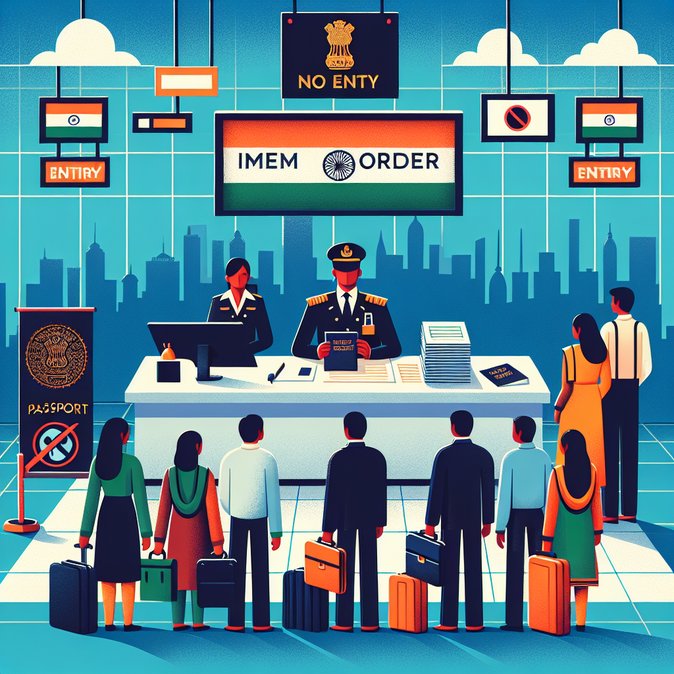
Amnesty International on 27 November published a scathing analysis of India’s new Immigration and Foreigners Order 2025, arguing that it erodes due-process safeguards and could enable mass arbitrary detention and deportations. The Order, notified earlier this month but published in full only last week, centralises almost all decision-making on visa cancellation, blacklisting and ‘prohibited places’ in the Union Home Ministry.
Key provisions shift the burden of proof onto individuals to demonstrate lawful status, reduce appeal windows to seven days and allow the government to designate premises ‘frequented by foreigners’ for warrant-less search. Amnesty says the framework mirrors controversial aspects of Assam’s Foreigners Tribunals but applies them nationally.
![Rights groups warn India’s new Immigration and Foreigners Order hands ‘unchecked power’ to state]()
Government officials defend the Order as a modernisation aligning India’s patchwork of colonial-era regulations with post-pandemic security realities. Corporate immigration practitioners, however, worry about compliance ambiguity: companies sponsoring foreign employees could face fines or facility raids if reporting timelines are missed. Hotels, universities and even hospitals now have mandatory 24-hour reporting obligations for every foreign guest or patient.
Amnesty has called for immediate repeal or substantial amendments, urging Parliament to introduce judicial oversight and clear human-rights safeguards. Until clarity emerges, multinationals should audit HR files, ensure FRRO registrations are up to date and train staff on the Order’s expanded disclosure duties.
Key provisions shift the burden of proof onto individuals to demonstrate lawful status, reduce appeal windows to seven days and allow the government to designate premises ‘frequented by foreigners’ for warrant-less search. Amnesty says the framework mirrors controversial aspects of Assam’s Foreigners Tribunals but applies them nationally.

Government officials defend the Order as a modernisation aligning India’s patchwork of colonial-era regulations with post-pandemic security realities. Corporate immigration practitioners, however, worry about compliance ambiguity: companies sponsoring foreign employees could face fines or facility raids if reporting timelines are missed. Hotels, universities and even hospitals now have mandatory 24-hour reporting obligations for every foreign guest or patient.
Amnesty has called for immediate repeal or substantial amendments, urging Parliament to introduce judicial oversight and clear human-rights safeguards. Until clarity emerges, multinationals should audit HR files, ensure FRRO registrations are up to date and train staff on the Order’s expanded disclosure duties.


